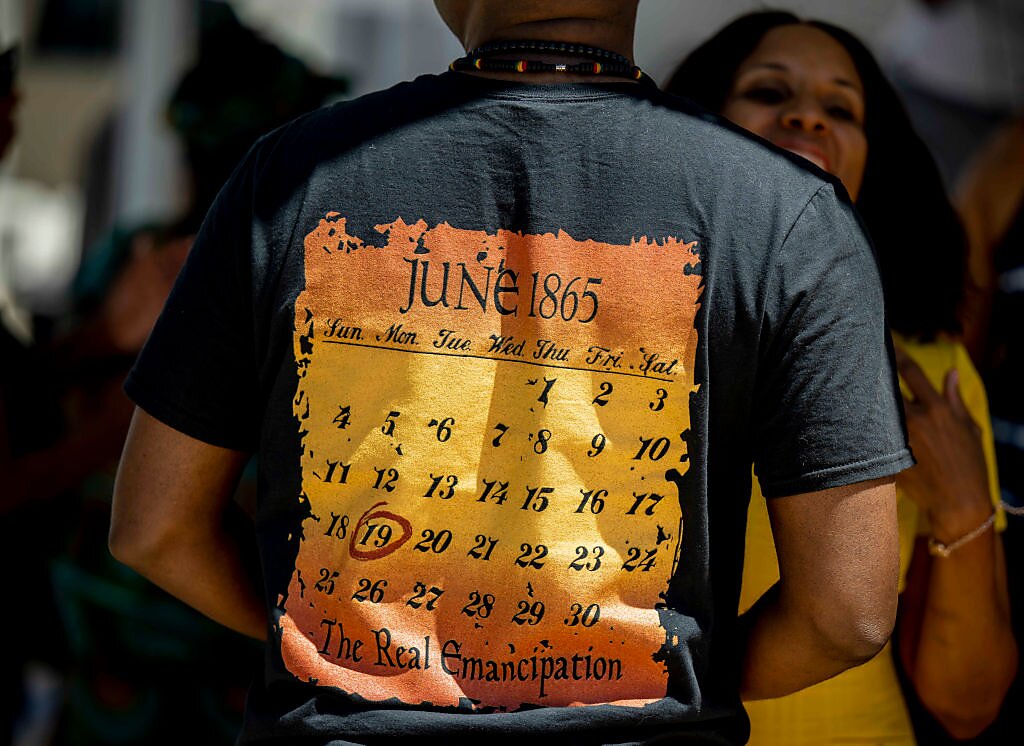Note: This blog was first posted on June 19, 2020. Juneteenth was declared a federal holiday in June 2021, signed into law by President Joe Biden.
On June 19, 1865, Major General Gordon Granger issued General Order No. 3 from the balcony of Ashton Villa in Galveston, Texas, where he had arrived the day before at the head of Union forces occupying the last bastion of Confederate‐held territory at the end of the Civil War.
The people of Texas are informed that, in accordance with a proclamation from the Executive of the United States, all slaves are free. This involves an absolute equality of personal rights and rights of property between former masters and slaves, and the connection heretofore existing between them becomes that between employer and hired labor.
The freedmen of Galveston reacted with celebrations, and a year later began the practice of annually commemorating the event. These yearly celebrations became a tradition in Texas and then spread throughout the rest of the country with the Great Migration as millions of black people left the rural South for cities in the North and West during the 20th century.
Since then, Juneteenth has become the primary holiday marking the abolition of slavery, beating out other possibilities such as the issuance of the Emancipation Proclamation (September 22, 1862; coming into effect on January 1, 1863) or the ratification of the Thirteenth Amendment (December 6, 1865). It was the latter that marked the final act of abolition in the few slaveholding border states that had not joined the rebellion and so were not covered by Lincoln’s war measure. But it was the official proclamation of abolition in the last holdout of the Confederacy that captured the popular imagination and came to be marked with summer festivities.
Aside from its anti-slavery origins, the popular adoption of Juneteenth over other possible dates serves as an example of culture and tradition arising organically rather than from official recognition, which only began in recent years. Today, forty‐nine states (all except Hawaii) have made some form of official recognition for Juneteenth and there is a movement urging Congress to adopt it as an official national holiday. [Juneteenth became a federal holiday on June 17, 2021.] That would be fitting.
It might be a symbolic gesture but symbolism matters. The abolition of slavery and the suffering and contributions of black Americans deserve a prominent place in our national narrative. The festive, celebrative spirit of Juneteenth is particularly appropriate for this. The triumph of hope over adversity and liberty over slavery is very much worth celebrating.
When asked to name the greatest libertarian achievement, Cato’s David Boaz has replied “the abolition of slavery.” It might sound like an odd claim for those who think of libertarianism as a 20th-century movement that coalesced in the decades after World War II, but it’s not unjustified. Although they weren’t yet known by that label, the quintessential libertarian ideas of inherent, universal, equal individual rights including self-ownership and voluntary exchange were at the heart of the abolitionist movement.
Slavery is the antithesis of liberty. The word “liberty” itself has its Latin origins in how the ancient Romans denoted the status of persons who were not slaves. It’s no coincidence that the earliest known written term for the concept of freedom, the ancient Sumerian word ama‐gi, referred to the manumission of slaves by returning them to their families (literally, to their mother) and has been adopted as a symbol by modern libertarians.
Advocates of freedom should have a deep reverence and appreciation for our abolitionist predecessors. While there have been others, three great historical causes in particular have heavily influenced the origins of what became modern libertarianism. The first was the rise of religious toleration and separation of church and state in response to devastating wars of religion in Europe; the second was the rise of the classical liberal movement for free trade as marked by Adam Smith’s Wealth of Nations and the repeal of the Corn Laws in Great Britain; but perhaps the most important were the radical individualist abolitionists who agitated against slavery in the United States and Europe in the first half of the 19th century.
Of course, it would be a mistake to think of this as a cause that ended in 1865. A century of Jim Crow, segregation, and racial terrorism would persist and eventually give way to its own modern descendants in the form of mass incarceration, the war on drugs, and police brutality targeted at black Americans.
Juneteenth can and should serve as a call to action, a reminder of our urgent need to strive towards the completion of the great unfinished work, to create a more perfect union dedicated to the self-evident truth that all are created equal. The mass protests over the murder of George Floyd have brought renewed prominence to the need for police accountability and reform of a criminal justice system that has been steeped in systemic racism and oppression. The “promissory note,” as Martin Luther King, Jr. referred to the Declaration of Independence, has yet to be cashed in full.
By affirming what we want to celebrate, we don’t just memorialize the past. We also set our sights on what we want to attain for our future, what kinds of progress are worth honoring because we want to both preserve those gains and continue to build on them. So today, have a happy Juneteenth from all of us here at the Cato Institute.

